Modernists: 1884-93
By:
August 26, 2009
Members of the Modernist Generation, born from 1884-93, were in their teens and 20s during the Nineteen-Oughts (1904-13, not to be confused with the 1900s), during which time — according to Virginia Woolf — human nature underwent a fundamental change, as a result of technological breakthroughs and global violence; and in their 20s and 30s during the war-torn Nineteen-Teens (1914-23, not to be confused with the 1910s). In Modernism (2000), Peter Childs might be describing this generational cohort when he writes: “There were paradoxical if not opposed trends towards revolutionary and reactionary positions, fear of the new and delight at the disappearance of the old, nihilism and fanatical enthusiasm, creativity and despair.”
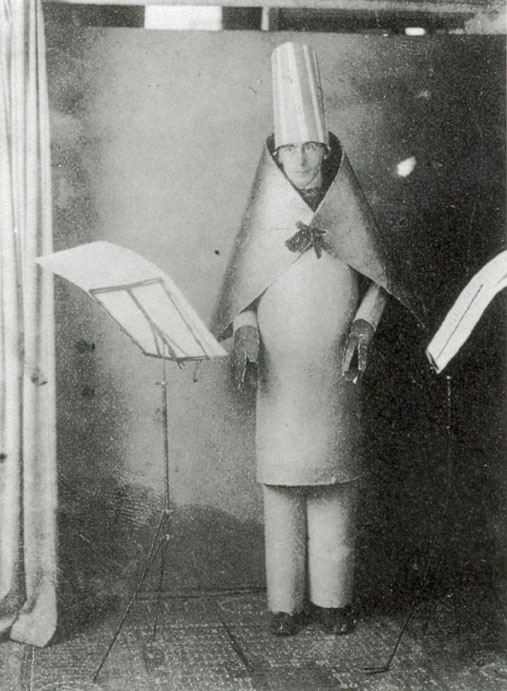
“How can one get rid of everything that smacks of journalism, worms, everything nice and right, blinkered, moralistic, europeanised, enervated?” demanded Hugo Ball in his 1916 Dada Manifesto. “Make it new,” insisted Ezra Pound. High-, low-, no-, and hilobrow members of the Modernist cohort include: Anna Akhmatova, Antonio Gramsci, Arthur Cravan, Charlie Chaplin, D.H. Lawrence, Djuna Barnes, Egon Schiele, Emmy Hennings, Ernst Bloch, James M. Cain, Jean Cocteau, Jean/Hans Arp, Karel Čapek, Kurt Schwitters, Ezra Pound, F. W. Murnau, Fritz Lang, Georg Grosz, Groucho Marx, György Lukács, H.P. Lovecraft, Hannah Höch, Harpo Marx, Henry Miller, Hugo Ball, Ludwig Wittgenstein, Man Ray, Marc Chagall, Marcel Duchamp, Max Ernst, Mikhail Bulgakov, Olaf Stapledon, Oskar Kokoschka, Randolph Bourne, Raoul Hausmann, Richard Huelsenbeck, Sophie Taeuber-Arp, T.S. Eliot, Thea von Harbou, Franz Kafka, Rube Goldberg, Anton Webern, Walter Benjamin, William Carlos Williams, and Yevgeny Zamyatin.

The Modernist Generation discovered and invented what NKer Van Wyck Brooks called a “usable past.” Pound, for example, found inspiration for his poems in classical Chinese poetry. Between the end of World War I and the end of World War II, a literary neoclassical movement — most famously T. S. Eliot and (slightly older) Wyndham Lewis — rejected the extreme romanticism of (for example) Dada, in favour of restraint, Christianity, and a reactionary political program. In Russia, the movement crystallized under the name of Acmeism, with Anna Akhmatova and Osip Mandelshtam as the leading representatives.
A key usable past, for the Modernist Generation, was childhood: Randolph Bourne, for example, lamented that the older generation ruled the world, “hence grievous friction, maladjustment, social war.” Ernst Bloch and Walter Benjamin argued that utopian socialism is nourished by the fairy tales and fantasies of childhood. (Meanwhile, “dada,” one of childhood’s first words, became the rallying cry of a hilobrow movement pioneered by an international gang of Modernists dodging WWI in Zurich.) But this idealization of childhood is not to be confused with today’s “rejuvenilization”; in The New Radicalism in America (1965), Christopher Lasch would write that the American “movement of intellectual renewal of which Bourne was the most courageous and clearsighted exponent” was the closest thing this country ever had to the spirit of the Frankfurt School.
Bourne and other members of the same generation, writes Lasch, couldn’t “conceive of enslavement in the uncomplicated categories of the old radicalism, the radicalism of Mill and Marx. Men, they knew, were everywhere in chains, but the chains had become invisible…. Tyranny came to mean to them not oppression but repression, and the battleground between freedom and authority shifted from society to the self.” Honorary Modernist Aldous Huxley’s Brave New World is about precisely this.
A reminder of my 250-year generational periodization scheme:
1755-64: [Republican Generation] Perfectibilists
1765-74: [Republican, Compromise Generations] Original Romantics
1775-84: [Compromise Generation] Ironic Idealists
1785-94: [Compromise, Transcendental Generations] Original Prometheans
1795-1804: [Transcendental Generation] Monomaniacs
1805-14: [Transcendental Generation] Autotelics
1815-24: [Transcendental, Gilded Generations] Retrogressivists
1825-33: [Gilded Generation] Post-Romantics
1834-43: [Gilded Generation] Original Decadents
1844-53: [Progressive Generation] New Prometheans
1854-63: [Progressive, Missionary Generations] Plutonians
1864-73: [Missionary Generation] Anarcho-Symbolists
1874-83: [Missionary Generation] Psychonauts
1884-93: [Lost Generation] Modernists
1894-1903: [Lost, Greatest/GI Generations] Hardboileds
1904-13: [Greatest/GI Generation] Partisans
1914-23: [Greatest/GI Generation] New Gods
1924-33: [Silent Generation] Postmodernists
1934-43: [Silent Generation] Anti-Anti-Utopians
1944-53: [Boomers] Blank Generation
1954-63: [Boomers] OGXers
1964-73: [Generation X, Thirteenth Generation] Reconstructionists
1974-82: [Generations X, Y] Revivalists
1983-92: [Millennial Generation] Social Darwikians
1993-2002: [Millennials, Generation Z] TBA
LEARN MORE about this periodization scheme | READ ALL generational articles on HiLobrow.
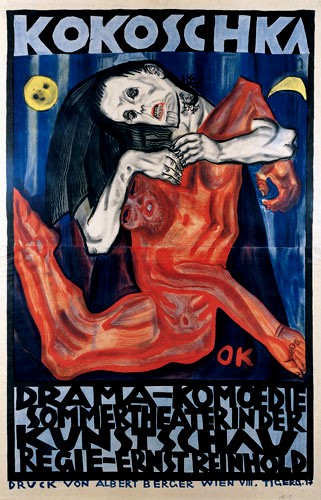
Another Modernist movement was spearheaded by Franz Kafka, Anton Webern, Egon Schiele, Oskar Kokoschka, Marc Chagall, Thomas Hart Benton, Milton Avery, Fritz Lang, F. W. Murnau, and Alban Berg, each of whom mined the (Psychonaut-discovered) collective unconscious for the “clear essence” of impressions and mental images, which they expressed in the form of simple short-hand formulae and symbols — hence the term Expressionism. Expressionism, which distorts reality for emotional effect, lent itself easily to another, far less exalted Modernist Generation genre: science fiction, horror, and fantasy novels and films. “[W]e drift unfamiliar to ourselves, immersed in darkness,” writes Bloch in The Spirit of Utopia (1918), in a brooding passage that could have been lifted from his contemporaries J.R.R. Tolkien, H. P. Lovecraft, Clark Ashton Smith, Yevgeny Zamyatin, Olaf Stapledon, Thea von Harbou, or Karel Čapek.
“But the thought of [utopia] is at hand,” continued Bloch. “For only we proceed slowly forward, darkly, atomistically, individually, subjectively, within everything moving or amassing, as the unresolved utopian tension constantly undermining everything shaped.” There is something utopian, or at least anti-anti-utopian about the Modernist Generation. Before Dada was an aesthetic movement, after all, it was a transnational community of misfits, an Argonaut Folly. D.H. Lawrence urged his friends to help him found an island commune, but to no avail; perhaps this was because the friends he asked were either too old (E.M. Forster, Bertrand Russell) or too young (Aldous Huxley) to be New Kids.

In America, Floyd Dell, John Reed, Maxwell Bodenheim, Eugene O’Neill, and others from this cohort formed an illiberal, non-repressive social order of sorts in New York’s Greenwich Village. Listen to Malcolm Cowley, writing in Exile’s Return about the older Villagers (“They”) that he and his fellow Hardboileds (“We”) encountered after 1917:
“They” had once been rebels, political, moral, artistic or religious — in any case they had paid the price of their rebellion… “We” had avoided issues and got what we wanted in a quiet way, simply by taking it…. “They” had been rebels: they wanted to change the world, be leaders in the fight for justice and art, help to create a society in which individuals could express themselves. “We” were convinced at the time that society could never be changed by an effort of the will.
Unlike their immediate elders, the Psychonauts, the Modernists described by Cowley weren’t interested in leaving civilization behind, or escaping into uncharted territories of the mind and spirit; and unlike their immediate juniors, the Hardboileds, they didn’t grow up “to find all gods dead, all wars fought, all faiths in man [i.e., ideologies] shaken,” as F. Scott Fitzgerald would put it. Instead, the Modernists were the generational cohort who did the fighting and the shaking.
I am not suggesting that what we know as the modernist movement in the arts was pioneered by this generational cohort; it was pioneered in the Nineteen-Tens (1904-13) by Psychonauts and Anarcho-Symbolists like Arnold Schoenberg, Wassily Kandinsky, the Futurists, and Picasso and Braque, all of whom embraced discontinuity, approved disruption, and questioned or rejected the Enlightenment ideal of Progress. Literary modernism was pioneered by Psychonauts and Anarcho-Symbolists like Guillaume Apollinaire, James Joyce, Franz Kafka, Gertrude Stein, Wallace Stevens, Virginia Woolf, and William Butler Yeats. The youngest members of the Modernist Generation had just turned 20 in 1913 — i.e., the year of Ezra Pound’s founding of Imagism, the Armory Show in New York, and, in Saint Petersburg, the first Futurist opera. However, the modernist movement exploded in the Nineteen-Teens (1914-23), during and immediately after the Great War, when the Modernist Generation were in their 20s and 30s. And then the modernist movement turned hardboiled in the Twenties (1924-33); avant-garde artists and writers of that period rejected the work of the Modernist Generation, which was found guilty of emphasizing continuity with a (useable) past while rebelling against it, and which seemed excessively mannered, irrational, and emotionalistic. Yet another demonstration of my periodization scheme’s accuracy!
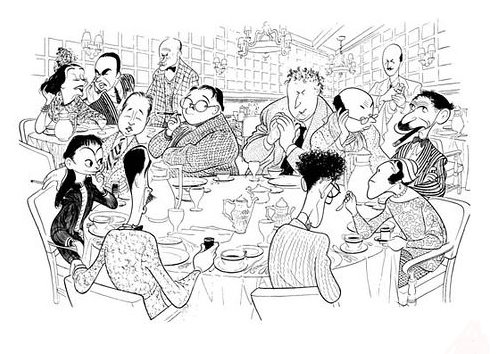
I could go on about this fascinating cohort. But after mentioning that Axis leaders Hitler, Mussolini, and Tojo, not to mention most of the Algonquin Round Table (Heywood Broun, Robert Benchley, Marc Connelly, Edna Ferber, George S. Kaufman, Harpo Marx, Dorothy Parker, New Yorker founding editor Harold W. Ross, and Alexander Woollcott), as well as many of the New Yorker’s notable early writers and cartoonists (Woollcott, Benchley, Parker, James M. Cain, Janet Flanner, Charles Brackett, Helen Hokinson, and honorary NKer James Thurber) are also members of the Modernist Generation, I’ll stop.
Meet the Modernists.
Honorary Modernists (born 1883): Franz Kafka, Rube Goldberg, Karl Jaspers, Anton Webern, Lon Chaney Sr., Walter Gropius, William Carlos Williams, Benito Mussolini

1884: Eleanor Roosevelt (Activist, First Lady), Damon Runyon (Journalist, Guys and Dolls), Norman Thomas (leading American socialist, pacifist, and six-time presidential candidate for the Socialist Party of America), Waldo Peirce (American painter), Hugo Gernsback (influential SF author and editor, founded Amazing Stories in 1926), Harry S. Truman (33rd US President, 1945-53), Roger Nash Baldwin (founder of the ACLU), Robert J. Flaherty (Film director, Nanook of the North), Bronislaw Malinowski (founder of social anthropology), Walter Huston (Actor, The Treasure of the Sierra Madre), Ivy Compton-Burnett (Novelist), Georges Duhamel (Novelist, Civilisation), Hideki Tojo (Prime Minister of Japan 1941-44), Max Beckmann (ex-Expressionist painter associated with Neue Sachlichkeit), Hugh Walpole (best-selling English novelist), Clement Davies (Leader of the UK Liberal Party, 1945-56), Alexander Belayev (Russian SF writer), Max Brod (Novelist, Kafka’s literary executor). HONORARY PSYCHONAUTS: A. Merritt (SF author), Gerald Gardner (Founder of Modern Wicca), Emil Jannings (Actor, The Last Command), Amedeo Modigliani (Cubist Italian sculptor and painter), Marie Vassilieff (Russian Cubist painter, atelier hostess), Jean Piccard (extreme balloonist).
1885: Ezra Pound (American poet, The Cantos), D.H. Lawrence (British novelist, Lady Chatterley’s Lover), Emmy Hennings (German Dadaist performer and poet), György Lukács (Hungarian Marxist philosopher and literary critic, founder of Western Marxism), Ernst Bloch (German Marxist philosopher, utopian theorist), Leadbelly (American musician, “Goodnight Irene”), Sinclair Lewis (American novelist, Arrowsmith and Elmer Gantry), George S. Patton (American military leader), Will Durant (American historian), Ring Lardner (American journalist, Gullible’s Travels), Charles Merrill (Founder of Merrill Lynch), Milton Avery (American modern painter), Theda Bara (American actress), Wallace Beery (American actor), Harry Blackstone (American magician), Jerome Kern (American composer), Edna Ferber (American novelist, Show Boat and Giant), Gabby Hayes (American actor, perennial sidekick), Billie Burke (American actress), Louis Untermeyer (American poet, anthologist), Erich von Stroheim (Austrian actor, director), Louis B. Mayer (Belarussian-American film and TV producer, the final “M” in MGM), Alban Berg (Viennese composer), François Mauriac (French novelist), Allan Dwan (Canadian film director), Lionel Atwill (English actor), Niels Bohr (Danish physicist, father of Quantum Theory), St. John Philby (British spy, Arabist)
1886: Van Wyck Brooks (Finders & Makers) [middlebrow?], Randolph Bourne (intellectual), Hugo Ball (Surrealism), Martin Heidegger (Being and Time), Raoul Hausmann (Surrealism), Olaf Stapledon (SF author), Karl Korsch (artist), Oskar Kokoschka (Austrian expressionist painter), Ludwig Mies van der Rohe (architect, The Glass Skyscraper), Jean/Hans Arp, (avant-garde sculptor, Dadaist), Karl Barth (Church Dogmatics), Paul Tillich (Systematic Theology), Ma Rainey (the mother of the blues), H.D. (Imagist poet, Sea Garden), Aldo Leopold, Ed Wynn (actor), Margaret Anderson (founder of the Little Review), Willis O’Brien, Clarence Birdseye (frozen and dried food), Ty Cobb (Detroit Tigers), Henry King (Twelve O’Clock High), Edward Everett Horton (1930s comedic actor), Joyce Kilmer (middlebrow poet), Alain Locke (Harlem Renaissance), Fred Quimby (producer of Tom and Jerry), Charles Ruggles (Bringing Up Baby), Rex Stout (Nero Wolf novels), Edward Weston, Nell Brinkley, Al Jolson (The Jazz Singer), Diego Rivera (Mexican painter), David Ben-Gurion, Michael Curtiz (Casablanca), Karl von Frisch, (researched bee communications), Frank Lloyd (Mutiny on the Bounty), Hugh Lofting (The Story of Dr. Dolittle), George Mallory (frozen for 75 years on Mt. Everest), Kay Nielsen (Danish Golden Age illustrator), Siegfried Sassoon (war poems), Charles Williams

1887: Marcel Duchamp (Dadaism), Marc Chagall (painter), Le Corbusier (most influential 20th century architect), Arthur Cravan (Surrealism), Jimmy Finlayson (comic, “D’oh!”), Boris Karloff (Horror actor), Erwin Schrödinger (Schrödinger’s wave equation), John Reed (Ten Days That Shook the World), Sylvia Beach, Raoul Walsh (The Naked and the Dead), Robinson Jeffers (poet, critic), Chico Marx (Marx Brother), Alexander Woollcott (The Man Who Came to Dinner), Marianne Moore (poet), Georgia O’Keeffe (abstract and landscape painter), Floyd Dell (intellectual), George Abbott (Damn Yankees), Fatty Arbuckle (Keystone Cop), Ruth Benedict (anthropologist, Patterns of Culture), Walter Connolly (It Happened One Night), Jim Thorpe (athlete), William Frawley (Fred on I Love Lucy), Conrad Hilton (Hilton Hotels), Alvin York (highly decorated WWI veteran), Juan Gris (Spanish Synthetic Cubist painter), Kurt Schwitters (Collagist, Merz), Marcus Garvey (Pan-African black nationalist), Rupert Brooke (war poems), Julian Huxley (Evolutionary biologist), Chiang Kai-Shek (president of Nationalist China), Paul Lukas (Watch on the Rhine), Edith Sitwell (Façade), Blaise Cendrars, Bernard Montgomery (won Battle of El Alamein during WWII), Ernst Roehm (organizer of Hitler’s Brownshirts, the SA)
1888: T.S. Eliot (poet, critic, neoclassicist: The Hollow Men), Irving Berlin (“White Christmas,” “God Bless America”), Harpo Marx (Marx Brother), Raymond Chandler (invented hard-boiled detective novel), Josef Albers (Homage to the Square), F.W. Murnau (Nosferatu, Sunrise), Nestor Makhno (Ukrainian anarcho-communist guerrilla leader), Eugene O’Neill (playwright), Maxwell Anderson (What Price Glory?), Beulah Bondi (Make Way for Tomorrow), Anita Loos, John Foster Dulles (Eisenhower’s Secretary of State), Heywood Broun (muckraking reporter), Richard E. Byrd (Arctic and Antarctic explorer), Dale Carnegie (How to Win Friends and Influence People), S.S. Van Dine (The Canary Murder Case), Joseph P. Kennedy (smuggler and patriarch of the Kennedy clan), Robert Moses (New York City planner), Franklin Pangborn (character actor), John Crowe Ransom (God Without Thunder), Tris Speaker (centerfielder), Edgar Church, Katherine Mansfield (Bliss), Vicki Baum (Grand Hotel), Georges Bernanos (The Diary of a Country Priest), Nikolai Bukharin (Soviet theoretical economist), Maurice Chevalier, Giorgio de Chirico (Metaphysical surrealist painter), Barry Fitzgerald (Going My Way), T. E. Lawrence, (Lawrence of Arabia), Fernando Pessoa, (heteronymous author, The Book of Disquiet), Knute Rockne, (Notre Dame head coach), Ernst Heinkel
1889: Charlie Chaplin (silent film comedian), Ludwig Wittgenstein (destroyed metaphysics), Hannah Höch (Dadaist), Jean Cocteau (La Belle et la Bête), Walter Lippmann (Today and Tomorrow), Thomas Hart Benton (muralist), Sophie Taeuber-Arp (Dadaist), Anna Akhmatova (dissident poet, neoclassicist), R. G. Collingwood (The Idea of History), Carl Theodor Dreyer (director), Conrad Aiken (Earth Triumphant), Seabury Quinn, Robert Benchley (humorist and screenwriter), George S. Kaufman (You Can’t Take It With You), W. S. Van Dyke (The Thin Man), Waldo Frank (American cultural critic and social historian), Erle Stanley Gardner (creator of Perry Mason), Alfred E. Green (Dangerous), Lambert Hillyer (Dracula’s Daughter), Edwin Hubble (astronomer), Shoeless Joe Jackson, Donald MacBride (High Sierra), Lila Wallace (Reader’s Digest), Adolf Hitler (dictator), Arnold Toynbee (A Study of History), James Whale (Frankenstein), Gabriel Marcel (French existential philosopher), Claude Rains (The Invisible Man)
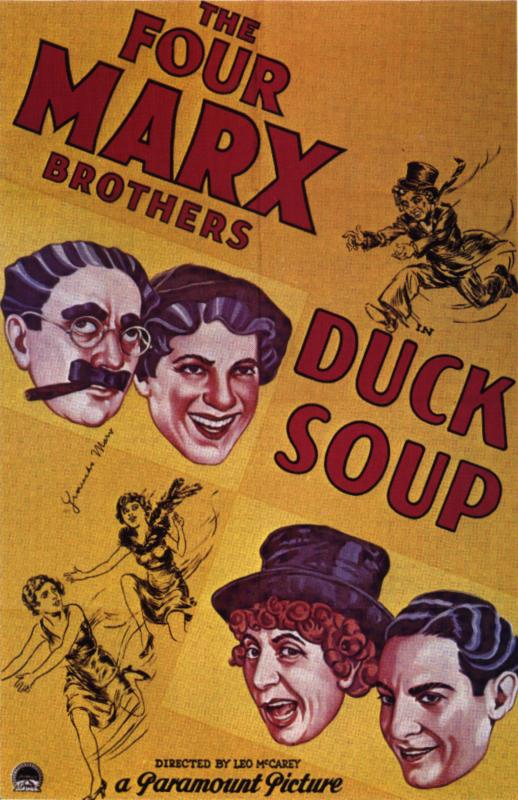
1890: Groucho Marx (Marx Brother), Man Ray (Dadaist photographer), H. P. Lovecraft (Cthulhu mythos author), Ho Chi Minh (Communist leader), Fritz Lang (Metropolis), Charles de Gaulle (President of France 1958-69), Egon Schiele (Expressionist artist), Karel Čapek (R.U.R.), Stan Laurel (Laurel and Hardy), Dwight D. Eisenhower (34th US President 1953-61), Frank Morgan (played the wizard in The Wizard of Oz), E. E. “Doc” Smith (SF author), Robert Armstrong (King Kong), Edward Arnold (You Can’t Take It With You), Robert L. Ripley (Believe It or Not!), Clarence Brown (National Velvet), Jelly Roll Morton (jazz composer, pianist), Katherine Anne Porter (Ship of Fools), Frederick Lewis Allen (Editor of Harpers 1941-53), Edwin H. Armstrong (Inventor of FM radio),Birdman of Alcatraz, Conrad Richter (The Awakening Land), Eddie Rickenbacker (flying ace shot down 22 planes in WWI), Colonel Sanders (Kentucky Fried Chicken), Ossip Zadkine, Agatha Christie (Mystery novelist),, Michael Collins (Irish Nationalist spymaster), Naum Gabo (Reconstructionist Realistic Manifesto), Vyacheslav Molotov (Stalin’s right-hand-man), Aimee Semple McPherson (Evangelist faith healer), Claude McKay (Home to Harlem), Adolphe Menjou (actor), Boris Pasternak (Doctor Zhivago), Jean Rhys (Wide Sargasso Sea)
1891: Henry Miller (Tropic of Cancer), Antonio Gramsci (Italian communist theorist, activist), Max Ernst (Surrealist), Mikhail Bulgakov (The Master and Margarita), Cole Porter (“I’ve Got You Under My Skin”), Fanny Brice (The Baby Snooks Show), Leo Burnett (American advertising pioneer), W. Averell Harriman (Ambassador to USSR Governor of NY), George E. Marshall (Destry Rides Again), Archie Mayo (The Adventures of Marco Polo), Irving Pichel (Destination Moon), Carl Stalling (composer for hundreds of Looney Tunes), Arthur Hays Sulzberger (New York Times publisher 1935-61), Earl Warren (US Chief Justice 1953-69), David Sarnoff (CEO of RCA founder of NBC), Otto Dix (Expressionist vividly depicted WWI), Rudolf Carnap (The Logical Syntax of Language), Edward Bernays (Propaganda), Ronald Colman (A Double Life), Reginald Denny (English actor), Edmund Goulding (Grand Hotel), Pär Lagerkvist (Barabbas), Gene Lockhart (Algiers), Osip Mandelshtam (Acmeist Russian poet, neoclassicist), Sergei Prokofiev (Peter and the Wolf), Erwin Rommel (The Desert Fox), Herbert Asbury (The Gangs of New York), Otis Adelbert Kline (SF writer).

1892: Walter Benjamin, Ernst Lubitsch, Richard Huelsenbeck, Harold W. Ross, J.R.R. Tolkien, James M. Cain, Charles Atlas, Djuna Barnes, Grant Wood, Janet Flanner, Maxwell Bodenheim, Oliver Hardy, Gummo Marx, Archibald Macleish, William Powell, William Beaudine, Charles Brackett, Joe E. Brown, Pearl S. Buck, Eddie Cantor, William Demarest, Alfred A. Knopf, Gregory La Cava, Alfred Lunt, Edna St. Vincent Millay, Reinhold Niebuhr, Mary Pickford, Hal Roach, Frank Tuttle, Wendell Willkie, Leo G. Carroll, J. Paul Getty Sr., Erwin Panofsky, Basil Rathbone, Haile Selassie, Manfred von Richthofen, Jack L. Warner, Rebecca West
1893: Dorothy Parker, Wanda Gág, Mae West, George Grosz, Lillian Gish, William Moulton Marston, Helen Hokinson, Beatrice Wood, Clark Ashton Smith, Dean Acheson, Russel Crouse, Donald Davidson, Allen W. Dulles, Edsel Ford, Harold Lloyd, Huey Long, Hattie McDaniel, Karl Menninger, Hermann Goering, I. A. Richards, Chaim Soutine, Dorothy L. Sayers, Leslie Howard, Victor Gollancz, Alexander Korda, Karl Mannheim, Mao Zedong, Eimar O’Duffy (Irish satirist, author). HONORARY HARDBOILEDS (born 1893): Anita Loos, Edward G. Robinson, Charles S. Johnson, Walter Francis White, Joan Miró, Jimmy Durante, John P. Marquand. Plus: Zora Neale Hurston (born 1891, but claimed she was born in 1901, so I think we can make an exception for her).
Honorary Modernists (born 1894): Aldous Huxley, Ben Hecht, Donald Ogden Stewart, James Thurber, Rudolf Hess, John Hargrave (Kibbo Kift).
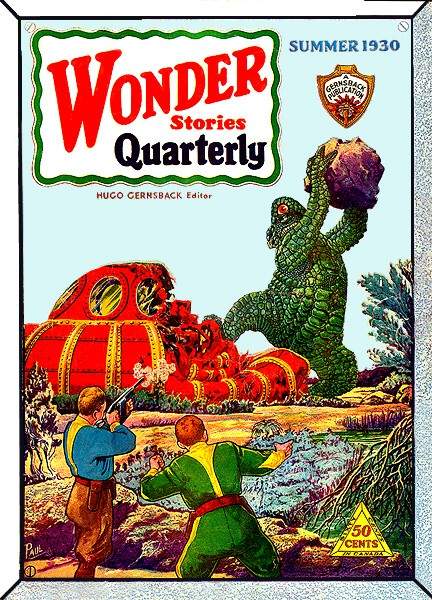
Authors of Radium Age science fiction born 1884-93 include: Clark Ashton Smith (The Uncharted Isle), Seabury Quinn (The Phantom Fighter), Hugo Gernsback (Ralph 124C41+, editor of Amazing Stories, coined term “science fiction), Yevgeny Zamyatin (WE), Olaf Stapledon (Last and First Men, Odd John, Star Maker), Joseph O’Neill (Land Under England), Ray Cummings (“The Girl in the Golden Atom”), Frigyes Karinthy (Voyage to Faremido, Capillaria), Thea von Harbou (Metropolis, The Rocket to the Moon), Miriam Allen deFord, Karel Čapek (The Absolute at Large, Krakatit, R.U.R.), H. P. Lovecraft (SF includes At the Mountains of Madness, The Shadow Out of Time, The Whisperer in Darkness), E.E. “Doc” Smith (The Skylark of Space), Edward Shanks (The People of the Ruins), F. Britten Austin (Battlewrack, By the Aero-Mail, On the Borderland, The War-God Walks Again), Otis Adelbert Kline (The Prince of Peril, numerous stories in pulp SF magazines), John Ernest Bechdolt (The Torch), Alexander Belayev (The Amphibian, The Struggle in Space), Eimar O’Duffy (King Goshawk and the Birds, The Spacious Adventures of the Man in the Street, Asses in Clover), Pearl S. Buck (Command the Morning, post-Radium Age), Sinclair Lewis (It Can’t Happen Here, post-Radium Age). NB: A. Merritt (The Face in the Abyss, The Metal Monster, The Moon Pool) is an honorary member of the Psychonaut Generation. Aldous Huxley (Brave New World), and John Hargrave are honorary Modernists. PLUS: Max Ernst’s sci-fi artwork.
ADVENTURE WRITERS: Earl Derr Biggers (Top 200: Seven Keys to Baldpate, The House Without a Key); Yevgeny Zamyatin (Top 200: We); Arthur Ransome (Top 200: Swallows and Amazons); Karel Čapek (Top 200: R.U.R.: Rossum’s Universal Robots, The Absolute at Large); E.V. Odle (Top 200: The Clockwork Man); H.P. Lovecraft (Top 200: At the Mountains of Madness); Max Brand (Top 200: The Untamed); Muriel Jaeger (Top 200: The Man with Six Senses); Richard Connell (Top 200: “The Most Dangerous Game.”).
READ MORE essays by Joshua Glenn, originally published in: THE BAFFLER | BOSTON GLOBE IDEAS | BRAINIAC | CABINET | FEED | HERMENAUT | HILOBROW | HILOBROW: GENERATIONS | HILOBROW: RADIUM AGE SCIENCE FICTION | HILOBROW: SHOCKING BLOCKING | THE IDLER | IO9 | N+1 | NEW YORK TIMES BOOK REVIEW | SEMIONAUT | SLATE
Joshua Glenn’s books include UNBORED: THE ESSENTIAL FIELD GUIDE TO SERIOUS FUN (with Elizabeth Foy Larsen); and SIGNIFICANT OBJECTS: 100 EXTRAORDINARY STORIES ABOUT ORDINARY THINGS (with Rob Walker).
